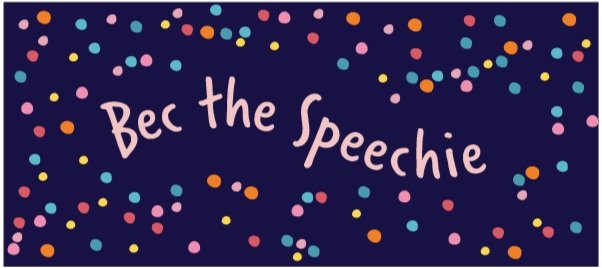Assessments
Assessments are used to gain an overview of a child's communicative strengths and weaknesses, and to identify any areas of concern in their speech, language and/or literacy development. Assessments can either be in the form of screening assessments or comprehensive testing.
I provide individualised, comprehensive assessment for children 0-12 years . Following the assessment, the results and recommendations are discussed. An assessment will be undertaken at your first visit to determine how to best help your child.
I also offer an opportunity to preschools and schools to participate in speech and language screenings.
1:1 and Group Therapy Sessions
I provide individual therapy sessions on a weekly, fortnightly or monthly basis, depending on the needs of the child and the family. Sessions are charged at 45 or 60 minutes including both the face to face time and admin time.
Therapy goals are set by using information gathered from the assessment, observation and talking with the child's parents. Together, we work to achieve these goals, in the therapy sessions and at home.
I am currently a mobile service and therapy is conducted at home, school, kinder, and childcare sessions. I work closely with parents, teachers, assistants and health care professionals to help your child reach their full potential.
I also run a neurodiversity affirming social and language group - Construction Club - a strengths baseed club for those who have an interest in building Lego. More information can be found in this flyer or jump over to the Construction Club tab.
What Areas Can I Help Your Child With?
Receptive Language
Receptive Language refers to a person's ability to understand language in a verbal, visual and written form. Receptive language difficulties can impact on a child's ability to interact effectively in the home, school and social environments. Children with receptive language difficulties can find it hard to follow instructions, understand questions and/or comprehend information presented both in the oral and written forms.
Expressive Language
Expressive Language refers to the skills a person needs in order to convey their message accurately to others. Expressive language includes the use of grammar, vocabulary, sentence structures and the development of text types. Expressive language can be verbal or through augmentative and alternative communication (AAC).
In infants and toddlers, expressive language difficulties can be when:
a baby is a 'quiet baby', meaning they aren't babbling or cooing
a child hasn't begun using single words after 1 year of age (late talker)
a child isn't beginning to combine two words together in a short sentence after 18 months of age
In Kinder aged children, expressive language difficulties can be when they are not using:
correct grammar such as pronouns 'he' & 'she'
appropriate use of tense such as 'the girl jump' instead of 'the girl jumped'
enough information in their sentences, which makes them sound vague or hard to understand
In school age children it may include the above, as well as:
difficulties using complex sentences to get meaning across to their friends and teachers
difficulties explaining a scenario or a problem
difficulties in telling and retelling a story
Articulation
Articulation refers to the clarity of a child's speech and their ability to produce sounds correctly.
Common articulation problems involve:
lisping
substituting one sound for another (e.g. saying 'fum' instead of 'thumb' or 'tat' instead of 'cat')
only producing parts of a word, rather than the whole word, when speaking (e.g. saying 'poon' instead of 'spoon' or 'ba' instead of 'back').
There is a link between speech sound production and literacy development in school aged children. Children who have difficulty articulating sounds are at higher risk of also having additional problems with their literacy development.
Literacy
Literacy is defined as being 'the ability to read and write.' It involves the acquisition and understanding of letter-sound relationships, sight word recognition, knowing how to sound out words for both reading and spelling, and realising when a word has been misread or spelt. Reading comprehension (or reading for meaning) is also an important aspect of literacy development, as comprehension is a vital part of all learning.
Social Skills
Social communication skills include verbal and nonverbal language to communicate to others in social environments. This area of a child's development includes the specific skills required to have a conversation, such as initiating/entering a conversation, taking turns, answering questions, providing information. Social skills can also include the ability to recognize subtle cues such as facial expressions and body language. In line with the neurodiversity affirming approach I am passionate about supporting naturalistic, fun and functional social skill support/development through interest based groups such as Lego based therapy groups. I believe in and support that further education in our society is needed around understanding the neurodivergent affirming movement so that people can value every person’s emotions, behaviours and communication styles. Please see links tab for further learning and information in this area.
Auditory Processing
Children with auditory processing difficulties often present as being inattentive in class and/or having poor attention spans. Literacy development can be particularly affected by problems with auditory processing. When auditory processing problems are present, speech pathology sessions can be used to teach the child, their parents and teachers strategies to help them function to their best ability, both in and out of the classroom environment
You do not need a doctor to refer to a speech pathologist.


